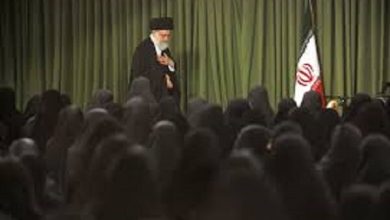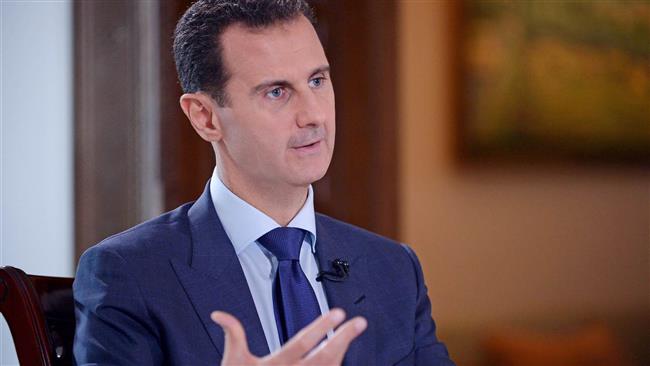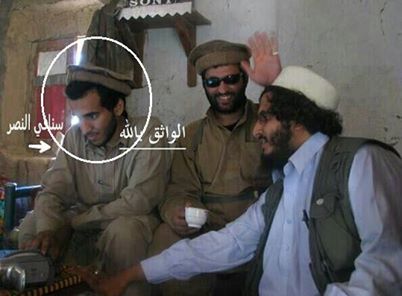Syrian MP: Saudi Failure in Syria to Backfire Soon

Syrian MP Saudi Failure in Syria to Backfire SoonSaudi Arabia never expected such a heavy defeat in Syria, and the ouster of its notorious Intelligence Chief Bandar Bin Sultan was just one of the many outcomes of this defeat and Saudi King Abdullah should wait for many more boomerang effects, a senior Syrian lawmaker said.
“The Saudi intelligence apparatus never expected the recent incidents in Syria, specially the victories of the Syrian army in various parts of the country,” Syrian MP Ahmad Haj Ali told FNA on Tuesday.
He reiterated that the recent developments in Syria have already left its negative effects in Saudi Arabia, including ouster of Prince Bandar and appointment of a deputy for the crown prince.
Haj Ali noted that the recent developments in Saudi Arabia all indicate that the Al Saud regime has been weakened.
In similar remarks on Sunday, Secretary-General of Egypt’s Hoshoud (Crowds) Movement Mohammad al-Jilani said King Abdullah ousted his Intelligence Chief Bandar Bin Sultan from his post after his moves and policies in Syria faced with crushing defeat and humiliation.
“Prince Bandar failed in his mission in Syria in practice and his case is actually closed,” Jilani told FNA.
Yet, he cautioned that the Saudi intelligence apparatus has still kept its preparedness after Bandar’s fall from power to continue its operations in Syria, saying the Saudis are not likely to stop their fervent support for the terrorists, specially the Takfiri militants, since they are acting like a “safety valve” for the Saudis to remain in power.
Saudi Intelligence Chief Prince Bandar bin Sultan was forced by the country’s King, Abdullah bin Abdulaziz Al Saud, to tender his resignation months after he was suspended and sent out of the country on the pretext of medical treatment.
The Saudi state-run TV announced last Tuesday that the country’s King has accepted Sultan’s resignation tendered days ago.
Sultan had left the country a few months ago on the pretext of medical treatment, but last week security sources in Riyadh said he would return to the kingdom within days after spending around two months abroad for surgery and retake his position as intelligence chief, including control of the Syrian dossier.
Bandar bin Sultan has been replaced with his deputy Marshal Yousef Al-Idrisi.
During Prince Bandar’s absence, Saudi Interior Minister Mohammed bin Nayef was put in charge of the Syrian file and of the intelligence agency.
The security officials said last week that the 65 year-old prince was seeking medical attention in the US and resting in Morocco after surgery on his shoulder.
Bandar, who formerly served as Saudi ambassador to the US for 22 years, has had special responsibility for the Levant for years, leading Saudi intelligence and strategic affairs in the region. Analysts and intelligence sources have repeatedly said that Bandar has been the key figure trying to boost Saudi weapons flow to Syrian rebel forces seeking to oust President Bashar Assad’s government.
The security sources said that Bandar held a number of official meetings while in Morocco, including with Saudi deputy defense minister Salman bin Sultan.
The deputy defense minister briefed Bandar on his official visits to Washington and Paris last month, they added, also saying that Bandar met Abu Dhabi Crown Prince Mohammed bin Zayed bin Sultan Al Nahyan while in Marrakech.
Informed sources had revealed in December that Bandar would be sidelined because the King and a large number of other Saudi princes were unhappy with his handling of Syria’s crisis.
A top Saudi diplomat had previously told the Associated Press that Bandar could not have taken any decisions without King Abdullah’s approval, including his moves with regard to Syria.
He said that the interior minister took over Bandar’s responsibilities in his absence because he too had experience in dealing with security affairs.
In September Saudi princes in a letter to King Abdullah protested at Bandar Bin Sultan’s failure in coaxing the US into a war on Syria to topple President Bashar al-Assad’s government.
“The letter was signed by 17 influential Saudi princes and was submitted to King Abdullah’s Chief of Staff,” a Saudi source close to King Abdullah’s monarchy, who asked to remain unnamed due to the sensitivity of his information, told FNA on September 18. Earlier reports said that Prince Bandar Bin Sultan has spent tens of millions of dollars to persuade the US political and security officials to launch a military strike on Syria.
Prince Bandar has spent a sum of $70 million to encourage the American officials to attack Syria, a Saudi security source told FNA in Riyadh late August.
The US and Saudi Arabia are considered as among the main actors in the Middle East and many strategic regional parameters are formed by them and their interactions in the region. Prince Bandar has recently played an increasing role in the security developments in the region.
Prince Bandar who was appointed by King Abdullah as the National Security Council and intelligence chief after 8 years of ambassadorial job in Washington has played a key role in Washington-Riyadh relations over the past decades.
Prince Bandar’s unique coordination with the US intelligence bodies has actually turned him into a major US field commander in the region to relentlessly direct the developments of the Middle East and the Muslim World in the US interest.
American author Bob Woodward’s book titled Plan of Attack, published in 2004, said Prince Bandar has played an important role in former US President George W. Bush’s decision to attack Iraq in 2003.
Prince Bandar has closely contacted five US presidents, 10 foreign ministers, 11 national security advisors and hundreds of other American statesmen during his tenure as Saudi envoy to the US. Prince Bandar is said to be the first Saudi ambassador to have information about US State Department’s security details




